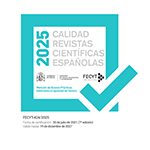Ist eine Medea ohne Kindermord überhaupt denkbar? Medea-Morphosen bei Euripides und Christa Wolf. Oder: Freispruch für Euripides
Abstract
The aim of this study is to discuss the significance of the child-murder for the Medea myth. For this purpose two of the most important adaptations of the myth are examined: Euripides’ tragedy and Christa Wolf’s novel (1996). The study attempts to shed new light on the invention of this mythologeme by Euripides. Contrary to the acceptance of the majority of the researchers this study assumes Euripides' Medea is not just a bourgeois marriage drama, but a political and social sketch of the microcosm of the Polis. Using various „messages in a bottle “Euripides succeeded in emphasizing on the needs of the suppressed ones and opening a new perspective for the female element. While however in the male tradition, from Euripides to von Trier, the suppressed comes to the light as cruelty, Wolf suggests another model of feminity. As a result her protagonist does not need the childmurder any longer. The myth is not a context, but a frame. Therefore all versions belong to the myth. In a time characterized by violence and fear, Wolf turns the attention to the origins of violence by setting other priorities, while telling the story of a person, which frightens both men and women.Downloads
Article download
License
Amaltea. Revista de mitocrítica is an open access journal which means that all content is freely available without charge to the user or his/her institution. Users are allowed to read, download, copy, distribute, print, search, or link to the full texts of the articles in this journal without asking prior permission from the publisher or the author. This is in accordance with the BOAI definition of open access."Full-text articles published in Amaltea. Revista de mitocrítica are open-access and published under a CreativeCommons License Attribution-NonCommercial-NoDerivatives 4.0 International (CC BY-NC-ND 4.0) http://creativecommons.org/licenses/by-nc-nd/4.0/deed.en. Reproduction, distribution or public communication of these articles with commercial purposes requires the Editor’s prior written. Redistribution for academic purposes is permitted, provided that the source and authorship are properly acknowledged, and that the journal is credited with the first publication, by adding a link to the journal's official URL. If available, the DOI of the article in question should also be included.













